Previously, the child had a high fever that lasted for three days without stopping, despite the mother giving him medicine and applying common fever-reducing methods. His body temperature always fluctuated between 38.5 and 40 degrees Celsius, accompanied by a cough, runny nose, wheezing, poor appetite, and fatigue. It was only when the child began to have difficulty breathing that his parents took him to the doctor.
At An Viet Hospital (Hanoi), the doctor diagnosed the baby with rhinopharyngitis caused by RSV virus infection, which progressed to bronchiolitis. The baby was hospitalized, using a specialized ventilator combined with respiratory physiotherapy such as percussion, sputum extraction, and nasopharyngeal suction to clear the airway and control infection.
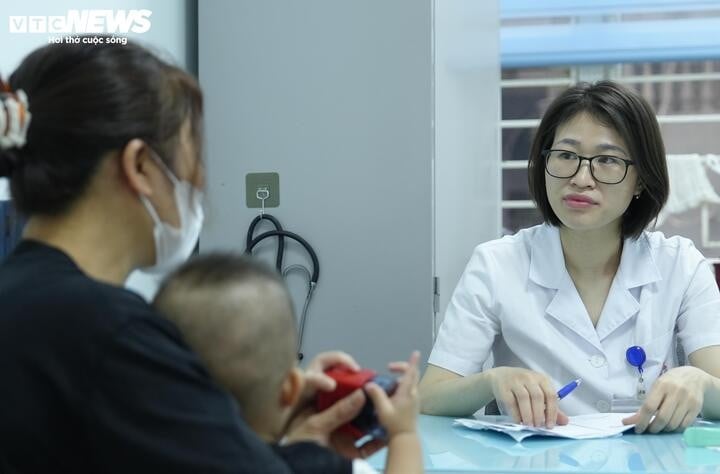
According to pediatrician Ha To Nhu, respiratory syncytial virus (RSV) is a common cause of respiratory diseases in young children, especially during the changing seasons. The virus is transmitted through the respiratory tract, especially through close contact habits such as kissing children, an act of affection that seems harmless but has many potential risks.
RSV virus can enter the body through the eyes, nose, mouth, and is easily transmitted from person to person through respiratory secretions such as saliva, droplets when coughing, sneezing... or through direct contact, such as shaking hands.
This virus can survive for hours on surfaces such as tables, chairs, toys, towels... Children can become infected if they touch an object containing the virus and then put it in their mouth.
In healthy adults and older children, RSV infection usually causes only mild symptoms similar to the common cold. However, in infants, children under one year of age, or premature babies, the virus can cause pneumonia, bronchiolitis, and even severe respiratory failure.
Children infected with RSV often have symptoms such as high fever, frequent cough, wheezing, runny nose, fussiness, fatigue, rapid breathing, and chest indrawing. Parents need to closely monitor these signs. If you see your child having difficulty breathing, lethargy, or a fever that does not go down, you need to take them to the doctor early for timely intervention.
There is currently no vaccine or specific treatment for RSV. Doctors recommend that parents limit strangers from holding and kissing their children, wash their hands thoroughly before contact, and actively keep their living environment clean and airy to reduce the risk of spreading the virus.
Source: https://baolangson.vn/be-gai-9-thang-tuoi-nhap-vien-vi-thoi-quen-hon-hit-cua-nguoi-lon-5044506.html


![[Photo] Many people in Hanoi welcome Buddha's relics to Quan Su Pagoda](https://vphoto.vietnam.vn/thumb/1200x675/vietnam/resource/IMAGE/2025/5/13/3e93a7303e1d4d98b6a65e64be57e870)
![[Photo] President Luong Cuong awarded the title "Heroic City" to Hai Phong city](https://vphoto.vietnam.vn/thumb/1200x675/vietnam/resource/IMAGE/2025/5/13/d1921aa358994c0f97435a490b3d5065)
![[Photo] President Luong Cuong attends the inauguration of the international container port in Hai Phong](https://vphoto.vietnam.vn/thumb/1200x675/vietnam/resource/IMAGE/2025/5/13/9544c01a03e241fdadb6f9708e1c0b65)
![[Photo] Prime Minister Pham Minh Chinh receives Ambassador of the French Republic to Vietnam Olivier Brochet](https://vphoto.vietnam.vn/thumb/1200x675/vietnam/resource/IMAGE/2025/5/13/f5441496fa4a456abf47c8c747d2fe92)




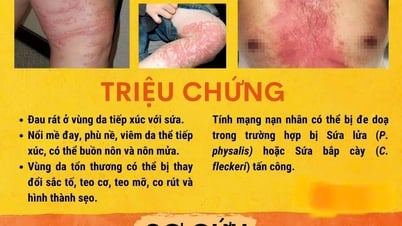









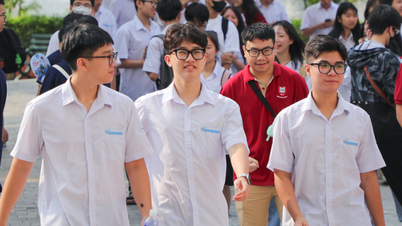
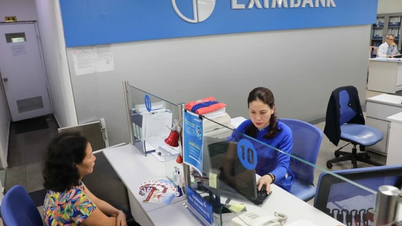























































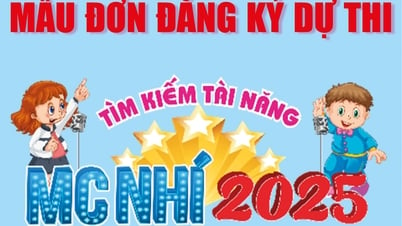











Comment (0)